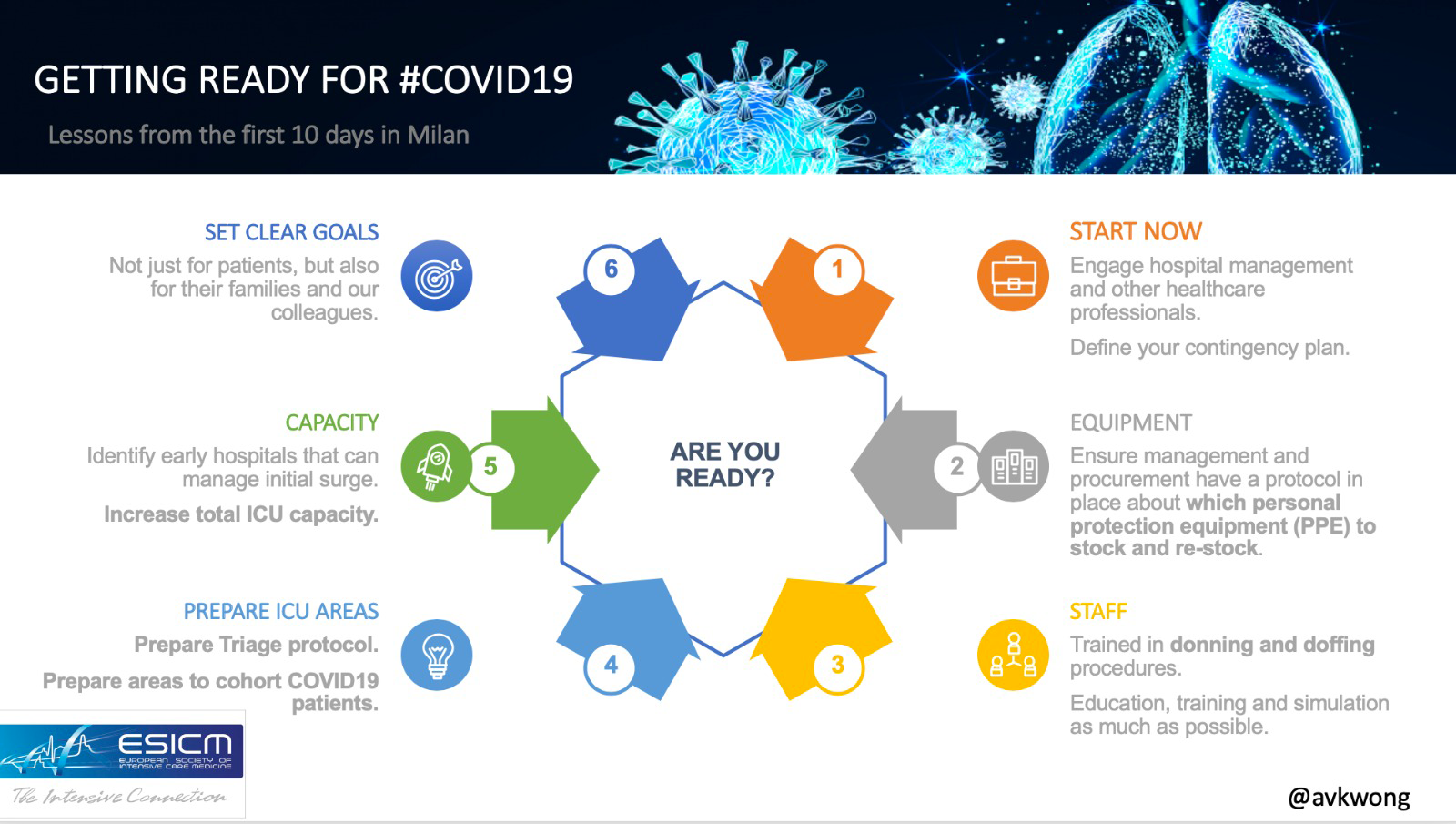Shared experience & guidance from our colleagues in Northern Italy
Dear Colleagues
Everyone is closely watching and monitoring the COVID-19 outbreak. This global emergency is presenting major challenges for our profession as we attempt to anticipate, tackle and eventually get ahead of it.
As there are many new experiences with this type of virus, we need to learn from those with more experience. Information is vital. As you will have seen, Northern Italy is in the middle of a crisis and Lombardy in particular has been severely affected. Our colleagues coordinating the emergency ICU response in Northern Italy have sent me the following message which they wish to convey to all our members.
I salute all the work our colleagues are doing, globally, faced with this situation. ESICM will endeavor to do its part to share accurate information and resources.
Wishing you all the strength needed in the coming months,
Yours respectfully
Prof. Jozef Kesecioglu
President, ESICM
Milan, 4 March 2020
Dear friends,
At this moment in time, we believe it is important to share our first impressions and what we have learned in the first ten days of the COVID-19 outbreak.
We have seen a very high number of ICU admissions, almost entirely due to severe hypoxic respiratory failure requiring mechanical ventilation.
The surge can be important during an outbreak and cluster containment has to be in place to slow down virus transmission.
We are seeing a high percentage of positive cases being admitted to our Intensive Care Units, in the range of 10% of all positive patients.
We wish to convey a strong message: Get ready!
We also want to share with you some key points from our experience:
- Get ready now – with your ICU’s networks – to define your contingency plan in the event of an outbreak in your community
- Don’t work “in silo”. Coordinate with your hospital management and other healthcare professionals to prepare your response
- Make sure your hospital management and procurement office have a protocol in place about which personal protection equipment (PPE) to stock and re-stock
- Make sure your staff is trained in donning and doffing procedures
- Use education, training and simulation as much as possible
- Identify early hospitals that can manage the initial surge in a safe way
- Increase your total ICU capacity
- Get ready to prepare ICU areas where to cohort COVID-19 + patients – in every hospital if necessary
- Put in place a triage protocol to identify suspected cases, test them and direct them to the right cohort
- Make sure you set clear goals for care with the patients and their families early on
With our best regards
| Prof. Maurizio Cecconi | Prof. Antonio Pesenti | Prof. Giacomo Grasselli |
| President elect, ESICM | University of Milan | University of Milan |
| Humanitas University, Milan |

>> Other resources available here <<


